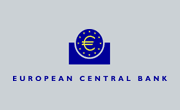 |
| Brussels Landmark Statue "Manneke Pis" says it all |
Before the bodies had been counted. Before the injuries had been
assessed. Before any group claimed responsibility for perpetrating the
attacks in the Belgian capitol Brussels, the lazy condemned the entire
religion of Islam.
This blame, meted out to a religion whose tenets expressly forbid
killing innocents — “it is as if he had slain mankind entirely” — lacks
fundamental logic. Worse, it lacks precision.
Without precision and studied consideration of the conditions which
culminated in these acts of terrorism, one Bruxelles Landmark Statueguarantee can be cemented:
future attacks.
Why? Because humans have an unironic penchant for
neglecting lessons from past mistakes — and an unfaltering blindfold as
if their present actions exist in a vacuum.
Indeed, blaming an entire religion for the actions of a few falsely
claiming they follow its teachings might be precisely what the
ignominious war machine of U.S. imperialism needs. In fact, modern-day
terrorism exists because of the actions of a specific religion — and it
isn’t Islam.
Imperialism, and its roots planted firmly in statism, inarguably
create, foster, and perpetuate terrorism at an alarming rate. An active
military campaign and overarching surveillance program ostensibly
embarked upon to demolish terrorism — anywhere on the planet — instead
manufacture terrorism at an increasingly rapid rate.
This cyclical structure isn’t difficult to comprehend, yet it somehow
escapes those eager to scapegoat blame on the undeserving — because
xenophobia.
For years, the United States military and
its over-inflated budget have bombed the hell out of predominantly
Muslim countries — doing a bang-up job of mostly missing intended
targets, instead killing civilian non-combatants more than of the time
by some estimates. U.S. foreign policy’s relentless hammer created the
staggering refugee crisis as civilians — either having their homes
destroyed by bombing or from justifiable fear it could happen — by the
millions feel they have no choice but to escape.
Worse
still, the U.S.’ vying for natural resources — oil, opium, rare earth
metals, and more — have caused a complex juggernaut of proxy wars with
sometimes
contradictory aims. This wrangling to exploit countrysides in otherwise
peaceful countries stands as classic imperialist dogma: they have it,
the U.S. government wants it, and the military is promptly deployed to
make it happen.
Largely downplayed in this cycle are countless corporations pulling the strings — directly driving hegemonic foreign policy.
Would we need to invade Afghanistan for its insanely profitable opium
crops without Big Pharma? Doubtful. Would we need to partner with Saudi
Arabia — not only a notorious human rights abuser, but one of the most
despised countries in the Middle East — were it not for its enormous
stores of oil? No way.
Would Syria be the quagmire it has become if it
weren’t geostrategically integral for a
proposed oil pipeline? Nope.
War has been called ‘endless’ for justifiable reasons — but it
wouldn’t be so without imperialism driving its existence. Violence is
its tool. But endless violence isn’t without consequences.
Terrorism holds undeniable responsibility for the attacks in Brussels, but it didn’t manifest because of Islam.
Blaming Islam is the lazy way out of holding those ultimately
responsible for its rise — and secures its perpetuation. But it doesn’t mean Islam is to blame.
Note EU-Digest: as
has been mentioned many times before - the EU, in addition to numerous
other urgent changes it needs to make to avoid self-destruction, must
establish it's own Middle East foreign policy based on economic
development and trade, and completely "divorce" itself from the many
years of failed US Middle East policies.
Read also: America Should Take Responsibility for the Brussels Terror Attacks









